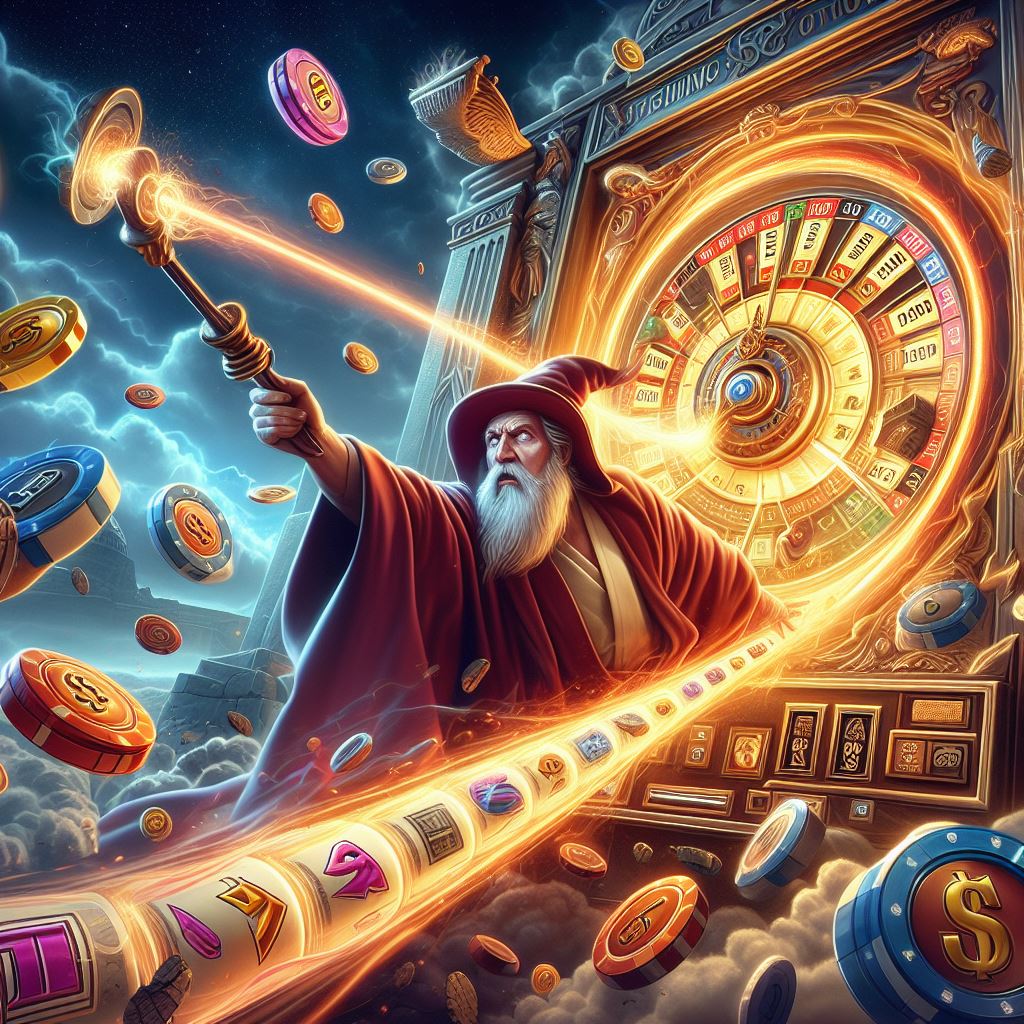Misteri Malam Slot Online” merupakan judul dari sebuah artikel kami kali ini. Kami ucapkan Selamat datang di “&steveheimoff.com&”, “& membuka kotak tak terbaas dalam hidup &”. Pada kesempatan kali ini,kami masih bersemangat untuk membahas soal “&Misteri Malam Slot Online&”.”Dalam kegelapan malam yang menyelimuti, ketika dunia nyata memasuki masa istirahatnya, dunia maya perjudian online tetap hidup …
Continue reading Misteri Malam Slot Online: Eksplorasi Perjudian Misterius
Melampaui Batas Slot Tradisional: Transformasi Slot Online
Melampaui Batas Slot Tradisional” merupakan judul dari sebuah artikel kami kali ini. Kami ucapkan Selamat datang di “steveheimoff.com”, “Mengungkap dunia perjudian melalui kata kata. Strategi dan kisah nyata “. Pada kesempatan kali ini,kami masih bersemangat untuk membahas soal “&Melampaui Batas Slot Tradisional”.”Slot telah menjadi ikon dalam industri perjudian selama bertahun-tahun, tetapi dengan munculnya teknologi digital, …
Continue reading Melampaui Batas Slot Tradisional: Transformasi Slot Online
Tempat Sunyi Bermain Slot: Kemenangan yang Epic
Tempat Sunyi Bermain Slot” merupakan judul dari sebuah artikel kami kali ini. Kami ucapkan Selamat datang di “steveheimoff.com . Pada kesempatan kali ini,kami masih bersemangat untuk membahas soal Di dunia gemerlap perjudian online, terdapat suatu tempat sunyi di mana para pemain slot mengejar kemenangan epik. Meskipun tidak sepopuler kasino-kasino besar atau platform perjudian terkenal lainnya, …
Continue reading Tempat Sunyi Bermain Slot: Kemenangan yang Epic
Puncak Alam Slot Online: Menikmati Jackpot Dalam Berkemah
Puncak Alam Slot Online merupakan judul dari sebuah artikel kami kali ini. Kami ucapkan Selamat datang di “steveheimoff.com“, “Revealing the World of Gambling Through Words, Strategies, and Real Stories“. Pada kesempatan kali ini,kami masih bersemangat untuk membahas soal dunia permainan slot online, ada satu tema yang selalu menarik perhatian para pemain: alam. Berdasarkan keindahan alam …
Continue reading Puncak Alam Slot Online: Menikmati Jackpot Dalam Berkemah
Antara Slot dan Anggur: Menikmati Kemenangan di Malam Hari
Antara Slot dan Anggur” merupakan judul dari sebuah artikel kami kali ini. Kami ucapkan Selamat datang di “steveheimoff.com”, “& Revealing the World of Gambling Through Words, Strategies, and Real Stories“. Pada kesempatan kali ini,kami masih bersemangat untuk membahas soal Di tengah kegembiraan kasino yang gemerlap dan atmosfir yang hidup, ada suatu pesona khusus yang terpancar …
Continue reading Antara Slot dan Anggur: Menikmati Kemenangan di Malam Hari
Terobosan Cerdas Slot Online: Membuka Rahasia Permainan
Terobosan Cerdas Slot Online merupakan judul dari sebuah artikel kami kali ini. Kami ucapkan Selamat datang di “steveheimoff.com Pada kesempatan kali ini,kami masih bersemangat untuk membahas soal Slot online telah menjadi fenomena yang mendominasi industri perjudian digital, menarik pemain dari berbagai belahan dunia dengan janji kegembiraan dan hadiah besar. Namun, di balik kilauan grafis yang …
Continue reading Terobosan Cerdas Slot Online: Membuka Rahasia Permainan
Explorasi Pencapaian Dunia Slot: Ke Unggulan Dan Pencapaian
Explorasi Pencapaian Dunia Slot merupakan judul dari sebuah artikel kami kali ini. Kami ucapkan Selamat datang di steveheimoff.com, Revealing the World of Gambling Through Words, Strategies, and Real Stories. Pada kesempatan kali ini,kami masih bersemangat untuk membahas soal .Slot telah menjadi ikon dalam industri perjudian, menghibur jutaan pemain di seluruh dunia. Di balik permainan yang …
Continue reading Explorasi Pencapaian Dunia Slot: Ke Unggulan Dan Pencapaian
Memahami Esensi Slot Online: Pandangan Mendalam Perjudian
Memahami Esensi Slot Online merupakan judul dari sebuah artikel kami kali ini. Kami ucapkan Selamat datang di steveheimoff.com. Pada kesempatan kali ini,kami masih bersemangat untuk membahas soal Perjudian telah menjadi bagian dari peradaban manusia sejak zaman kuno, berkembang dari aktivitas rekreasi menjadi fenomena global yang luas. Dengan kemajuan teknologi, khususnya internet, industri perjudian telah mengambil …
Continue reading Memahami Esensi Slot Online: Pandangan Mendalam Perjudian
Strategi Slot Pragmatic: Meningkatkan Peluang Anda
Strategi Slot Pragmatic merupakan judul dari sebuah artikel kami kali ini. Kami ucapkan Selamat datang di steveheimoff.com, Revealing the World of Gambling Through Words, Strategies, and Real Stories. Pada kesempatan kali ini,kami masih bersemangat untuk membahas soal .Slot Pragmatic Play dikenal luas di kalangan penggemar kasino online karena desain menarik, tema inovatif, dan potensi kemenangan …
Continue reading Strategi Slot Pragmatic: Meningkatkan Peluang Anda
Strategi Jitu Menaklukkan Slot: Panduan untuk Pemain Modern
Strategi Jitu Menaklukkan Slot merupakan judul dari sebuah artikel kami kali ini. Kami ucapkan Selamat datang di steveheimoff.com, Revealing the World of Gambling Through Words, Strategies, and Real Stories. Pada kesempatan kali ini,kami masih bersemangat untuk membahas soal . Permainan slot telah lama menjadi favorit di kasino dan, dengan munculnya internet, slot online kini lebih …
Continue reading Strategi Jitu Menaklukkan Slot: Panduan untuk Pemain Modern








